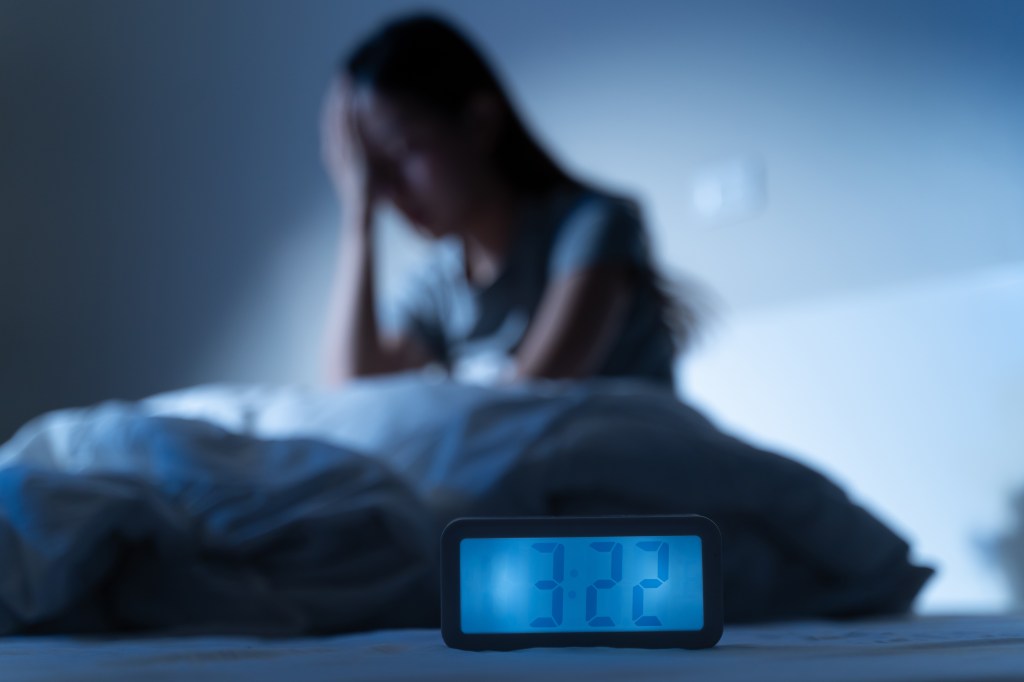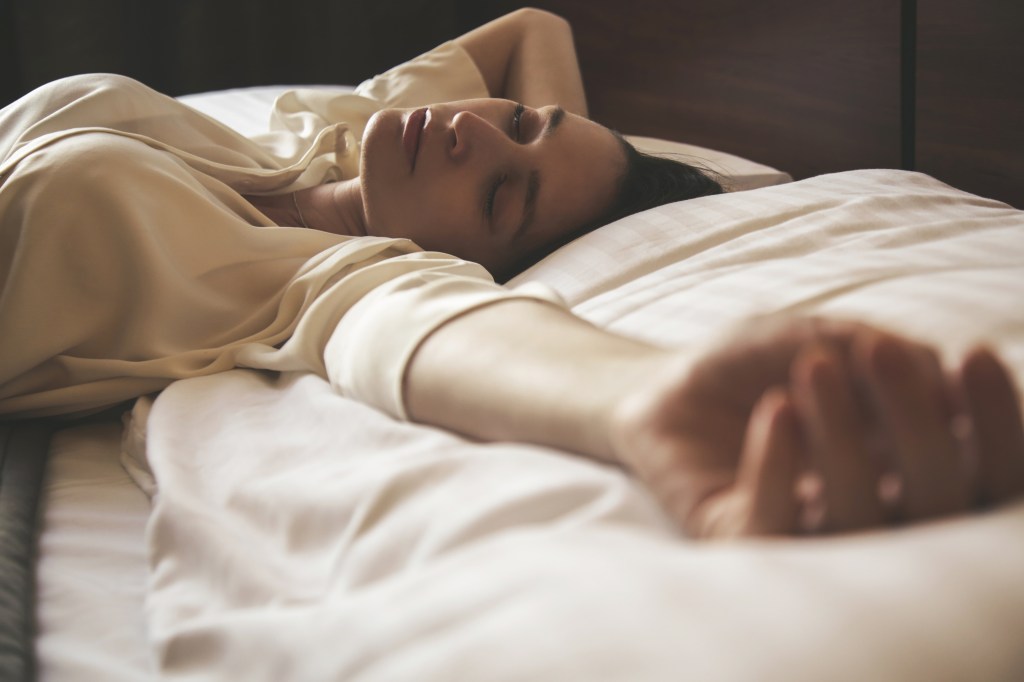Are you struggling to sleep between depths and winter troubles?
You are not alone. Six in 10 Americans say their sleep routines feel more compromised during cold months than in other seasons.
Experts note that the decrease in sunlight, the heaviest meals, the warmest bedroom temperatures, Less physical activity and drier air, all plotting to make it harder to fall and stay asleep.
Dr. William Lu, a general doctor and medical director at Dreem Health, an online sleeping clinic that offers home sleep studies and sleep apnea treatment, tells The Post that trying NO Falling asleep can be the key to drowsiness.

While the fight against sleep may seem opposite to falling asleep, Lu explains the psychology behind effective resistance.
“This is a current technique in cognitive behavior therapy for insomnia called paradoxical purpose,” he said.
“Sleep is something that must come naturally. Listen to your body and look for signs that you are sleepy and ready for bed. I would say that the more you try to sleep, the harder it becomes. ”
According to Lu, anxiety not to make the right sleep often becomes a self-fulfilling prophecy: the more you worry you can’t rest, the less you will rest.
Psychologically, this concern is known as the “performance anxiety”, where panic for the result guarantees its failure. The paradoxical goal aims to surrender that horror and do the opposite of what you are trying to do, trying to stay awake against forced sleep.
In practice, paradoxical goals can include raising from bed and incorporating into a common activity that requires little attention, but not stimulation or pleasure enough to keep you awake. For example, you can wash clothes or reorganize a book rack.
These distractions can help remove mental focus from sleep pressure and encourage drowsiness, helping people sleep more naturally.
Martin Seeley, CEO of Mattressnextday, admits that the deliberate non -sleeping to fall asleep may seem “completely counterin ‘, but the psychological trick works.
Although suspicious, the research proves the efficiency of the paradoxical purpose.
A 2021 meta-analysis published in Journal of Sleep Research discovered that the use of paradoxical purpose techniques significantly reduced sleep -related performance anxiety. Participants who could surrender to insomnia ended up falling asleep faster.

In addition to the paradoxical purpose, Lu recommends closing the curtains and reducing the light in the bedroom to encourage bedtime.
“I personally try to cover any light that can come from electronics in the room. Even when our eyes are closed, we can still feel the light and this can affect when we wake up. ”
Meanwhile, Dr.
Do not consume caffeine about 10 hours before bedtime, finish eating large meals or [drinking] Alcohol three hours before crawling in bed, relax your body and brain two hours before you want to fall asleep, avoid electronic equipment during the last hour you are awake – and never hit “snoosis”.
#sleep #psychological #revenge #bed
Image Source : nypost.com